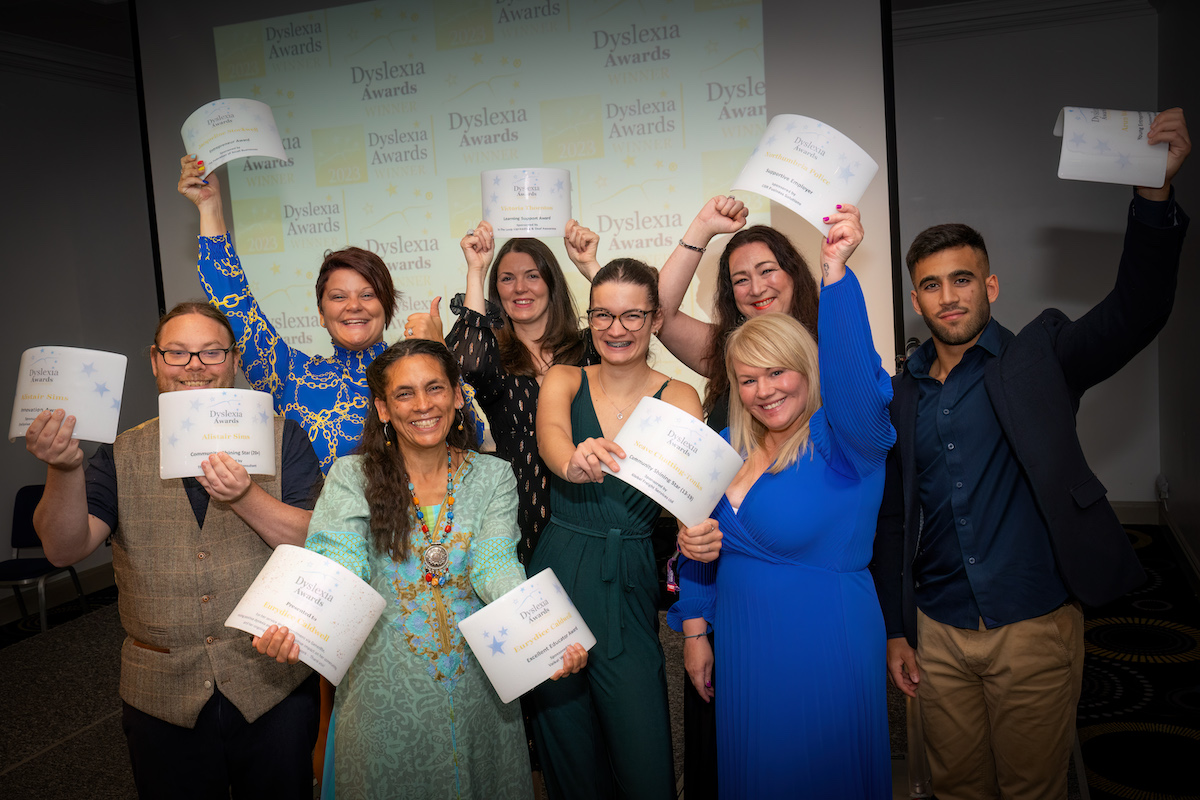Dyslexia: The quiet social scandal, that’s being ignored. Again!

On Friday 2nd December Matt Hancock returned to Parliament after his stint in the jungle for the second reading of his Private Members Bill – The Dyslexia Screening and Teacher Training Bill.
The Bill aims to make it law that all children in primary schools are screened for dyslexia, and that teachers are trained in dyslexia so they can support the needs of dyslexic learners. In his opening remarks, Matt reminded us that 80% of dyslexics leave school without their dyslexia being identified, and that this must change. The Bill’s aim is to ensure that UK schools are spotting all dyslexic children early in their school career, so they get the help and support they need to thrive in school and life.
1 in 5 children are dyslexic
1 in 5 children are dyslexic, that’s 20% of every classroom, so as Matt said in his speech “every teacher is a teacher of dyslexic children” and every teacher needs to be able to create an inclusive classroom where dyslexic learners can thrive.
So, how did it go? Well, unfortunately they ran out of time! The parliamentary session ran from 9.30am to 14.30pm and Matt’s bill was third on the list to be debated. The second bill took a very long time, (the deputy speaker even made mention of filibustering) but this meant it only left Matt 30 minutes to make his case and answer questions from the other sitting MPs that day. At 14.30pm the deputy speaker banged his gavel, and the bill reading was halted, meaning that we now must wait until March 3rd for the second reading to continue.
Dyslexia has been kicked into the long grass by parliament
So, despite the very real prospect of much needed change at a governmental level, the UK government is still no closer to spotting and supporting dyslexic children and creating inclusive classrooms for them to thrive and, yet again, dyslexia has been kicked into the long grass by parliament.
The history of dyslexia – 100+ years of knowledge.
Dyslexia is a quiet social scandal that has been ignored, debated and marginalised for over 100 years, despite us knowing exactly how to identify and support it for decades. Here are just a few dates from our Brief History of Dyslexia timeline which features in our recent School Report.
Dyslexia was first reported in the British Medical Journal in 1896, where it was referred to as ‘word blindness’. In 1935 the first dyslexia intervention programme was published and is still used today!
In 1944 Life magazine reported that “Dyslexia is responsible for 70% of school failures in 6- to 12-year-olds.” In 2009 it was still being ‘discussed’ with the ‘No to Failure’ report highlighting the link between unsupported dyslexia and school failure and showcasing how effective evidence-based support can be.
Worryingly, both sides of the house seem to think we need more research or review before we can help dyslexic learners. Claire Coutinho; Minister for Children, Families and Wellbeing; pledged to work with Matt Hancock to find evidence-based solutions, and Bridget Phillipson, the Shadow Education Secretary, pledged that Labour would use money saved from their plans to withdraw VAT exemption on private schools to invest in schemes to support Special Educational Needs.
So, here we are in 2022 and we still don’t have a school system that is inclusive or supportive for dyslexic learners, and no clear plan from government to put this right – despite having all the evidence we need and a free solution.
Dyslexic Thinking – a most sought-after skill for today’s workplaces.
Worrying as this is for dyslexic children and their families, it should worry us ALL, as research shows that Dyslexic Thinking skills are vital for the workplace. And it seems we’ve known about the upside of dyslexic for decades too. Way back in 1974, the Houston Chronicle reported on Dyslexic Strengths, sighting some of the great Americans who were dyslexic, from Abraham Lincoln to Nelson Rockefeller.
At Made By Dyslexia we are championing Dyslexic Thinking skills and creating research and campaigns that help the world to understand how valuable and vital they are, because they are the ‘soft skills’ every workplace is looking for like creativity, adaptability, leadership, innovation, problem solving and critical thinking. As our 2018/19 reports with global consultancy EY, Value of Dyslexia, found: these skills are a direct match for those identified by the World Economic Forum as the skills of the future.
Right now, the world is experiencing an unprecedented skills gap. Our 2020 report, The Dyslexic Dynamic, pointed out that talent shortages are at a 15 year high. Dyslexic minds are poised to fill this skills gap. As technology takes over the tasks dyslexics find more challenging, the soft skills that are most valued in today’s workplaces are the exact skills that people with dyslexia excel at.
By 2025 machines and humans will share roles 50-50. The 50% of ‘human’ skills needed map directly with Dyslexic Thinking. As 1 in 5 people are dyslexic, this represents a global workplace talent pool of over 700 million people.
This fact was recognised by LinkedIn, who in April 2022, added Dyslexic Thinking as a skill to its platform. Watch our Dyslexic Thinking campaign film. Dyslexic Thinking was also added as a noun to the dictionary.
It’s time for action – with or without government
If we continue to go on as we do now, the number of dyslexics that go unidentified and unsupported will continue to grow and their outlook will continue to look bleak. Research found 55% of children leaving school unable to read and write were unsupported dyslexics, and over 50% of people in UK prisons are dyslexic – this cannot continue. The UK’s children have been failed by our governments for decades when the solution is simple – we need to train teachers to spot and support them. This government’s refusal to recognise this point and equip all teachers with the tools & knowledge to support dyslexic children is shameful, and flies in the face of their “Levelling-up” agenda. Children need help now and the government must stop debating and start acting immediately.
Made by Dyslexia plans to change this. We’ve launched #LearnDyslexia, a global movement aimed at training EVERY teacher with free online, on demand training created with dyslexia experts from world leading schools, and Microsoft.
New York City, the biggest city in the world, has already Learnt Dyslexia and trained all 100,000 public-school teachers, because Mayor Adams (a dyslexic himself), looked at the history and evidence and recognised the solution was to skill up teachers in dyslexia.
Now, we are asking the UK government to do the same. Heed the lesson and evidence from history of dyslexia and act. In a time of economic turmoil, when UK Plc needs to be nurturing the talent in every young person, we are offering a free solution.
But, while we wait for our government to debate Matt’s Bill we can all take action by encouraging every teacher to #TakeADayForDyslexia and #LearnDyslexia.
By Kate Griggs, CEO & Founder of Made By Dyslexia
Find out more on our website and watch our campaign film here











Responses